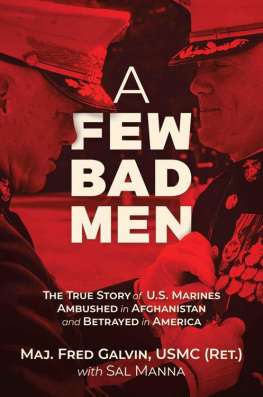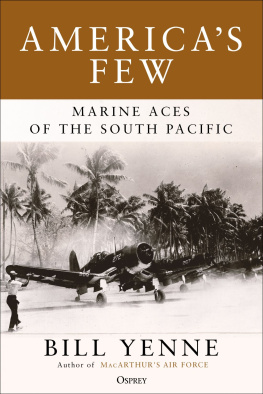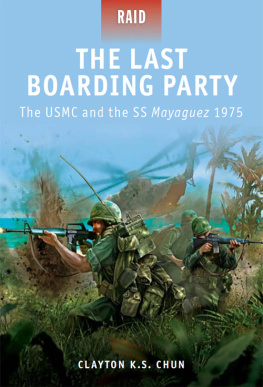
This edition is published by PICKLE PARTNERS PUBLISHINGwww.picklepartnerspublishing.com
To join our mailing list for new titles or for issues with our books picklepublishing@gmail.com
Or on Facebook
Text originally published in 2007 under the same title.
Pickle Partners Publishing 2014, all rights reserved. No part of this publication may be reproduced, stored in a retrieval system or transmitted by any means, electrical, mechanical or otherwise without the written permission of the copyright holder.
Publishers Note
Although in most cases we have retained the Authors original spelling and grammar to authentically reproduce the work of the Author and the original intent of such material, some additional notes and clarifications have been added for the modern readers benefit.
We have also made every effort to include all maps and illustrations of the original edition the limitations of formatting do not allow of including larger maps, we will upload as many of these maps as possible.
GENERAL ROY S. GEIGER, USMC: MARINE AVIATOR, JOINT FORCE COMMANDER
by
JAMES B. WELLONS, MAJOR, USMC
TABLE OF CONTENTS
Contents
TABLE OF CONTENTS
REQUEST FROM THE PUBLISHER
ABOUT THE AUTHOR
Major James B. Wellons is a 1992 graduate of the United States Naval Academy, where he earned his commission as a Second Lieutenant in the Marine Corps. Following the Basic School in 1993, he attended flight training at NAS Pensacola, FL, NAS Corpus Christi, TX, and NAS Meridian, MS, earning his wings as a naval aviator in August 1995. He went on to fly AV-8Bs at MCAS Cherry Point, NC, where he joined VMA-231 in 1997 and deployed twice with the 26 th Marine Expeditionary Unit. In 2000, he joined VMAT-203, the AV-8B Fleet Replacement Squadron. While there, he acted as an AV-8B Instructor Pilot and graduated from Aviation Safety School and the 2001 Weapons and Tactics Instructor (WTI) course at Marine Aviation Weapons and Tactics Squadron One (mAWTS-1). In 2002, he returned to VMA-231, where he acted as pilot training officer and WTI. He deployed with the 24 th Marine Expeditionary Unit in 2002, acting as the HMM-263 Future Operations and Tactics Department Head and AV-8B WTI. During this deployment, he flew in support of Operation IRAQI FREEDOM. His last tour was at MAWTS-1, where he served as AV-8B Instructor and Division Head and TACAIR Department Head. In July 2007, Major Wellons was assigned to U.S. Marine Corps Forces, Central Command.
ACKNOWLEDGMENTS
This project has been a rewarding and surprisingly enjoyable journey through the annals of Marine Corps history and the research process. I would like to acknowledge the support and enthusiasm of the entire faculty of the School of Advanced Air and Space Studies (SAASS), Air University, Maxwell AFB, Alabama. This great institution unhesitatingly provided the resources necessary for a project of this scope. Among the many faculty members who have supported my research, my thesis advisor, Dr. Richard R. Muller, deserves my deepest gratitude. His professionalism, insight, and motivation were critical to the success of this work. A second note of thanks goes to Dr. Thomas Hughes, my thesis reader, whose invaluable perspective and constant encouragement were instrumental in shaping the biography of General Geiger.
There is an extensive group of esteemed individuals who assisted my research and made this project possible. This group includes researchers, archivists, and librarians who helped me navigate the many research obstacles I faced. Researching this project required visits to the Naval Historical Center in Washington, D.C., the National Archives II in College Park, MD, and the Marine Corps Historical Records Branch and Alfred Gray Research Center in Quantico, VA. At each of these facilities were key individuals who helped me stay on course. Most notable was Dr. Jim Ginther, Archival Team Leader at the Archives and Special Collections Branch, Library of the Marine Corps. Dr. Ginther offered many key resources and contacts and generously read and critiqued my thesis draft. It was through Dr. Ginther that I found Colonel Roy S. Geiger, Jr., who kindly shared several of his fathers personal items and sat for a lengthy interview in his home. His insight was critical in the effort to recover the memory of Roy Geiger.
The most important resource for this project was Colonel Edward C. Kicklighter, USMC (Ret.), who was General Geigers Pilot and Aide-de-Camp in World War II. Colonel Kicklighter kindly read my thesis and provided precious insight through dozens of letters and phone calls. His dedication to this project was remarkable.
Finally, I wish to thank my wife, Grayson, and my daughters, Lilly and Lucy. It is to these lovely girls that I am most indebted for the sacrifices that made this project possible.
ABSTRACT
This work comprises an effort to answer the question of how an airman can be qualified to be a Joint Force Commander, using the biographical example of General Roy S. Geiger, USMC. Geiger was the fifth designated Marine Aviator, earning his wings in June of 1917. He then served as a squadron commander in the First Marine Aviation Force in World War I (WW I), where he flew combat sorties and earned his first Navy Cross. In the interwar years, he served in multiple command billets, acted as head of Marine Aviation, and performed with distinction as a student at the Army Command and General Staff School and the Army and Navy War Colleges. During World War II, Geiger commanded the First Marine Aircraft Wing and the CACTUS Air Force in the dark days of the Guadalcanal Campaign in 1942, where at age fifty-seven he again flew in combat, earning his second Navy Cross. He went on to serve as an Amphibious Corps Commander in the Pacific Theater, where he led campaigns at Bougainville, Guam, and Peleliu. Finally, he distinguished himself in the battle of Okinawa as the only Marine ever to command a field Army, the Tenth Army. After World War II, Lieutenant General Geiger continued to shape the Marine Corps in command of Fleet Marine Forces, Pacific until his premature death in 1947. The study is a chronological account of the life of Roy Geiger, with a focus on his leadership traits, extensive professional military education, remarkable joint relationships, and innovation, all of which contributed to his success as a Joint Force Commander. The author argues that Geiger was the most influential Marine aviator and among the most successful operational commanders in the history of the United States Marine Corps. Roy Geiger was the prototype for a Joint Force Commander.
Introduction
The relationship I had with Roy Geiger was the best Ive had, anywhere, anytime, during the war, with any other service. It was partly due to his personality. He was forceful and at the same time very cooperativea wonderful man, very knightly character. Everybody liked Geiger. But he was no popularity jack. He was a good tough Marine. Admiral Richard L. Connolly
Roy S. Geiger was the most influential Marine aviator in the history of the United States Marine Corps, yet his contributions are largely forgotten. There is a Camp Geiger in Camp Lejeune, NC and Geiger Hall houses the Expeditionary Warfare School in Quantico, VA, and occasionally one stumbles across a Geiger Street on Marine Corps bases around the world. Despite these tokens of recognition, however, the average Marine has little if any knowledge of Roy Geiger and his name is virtually unknown among the general public. {1}






